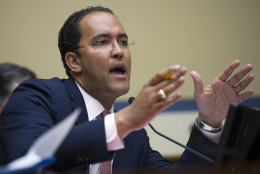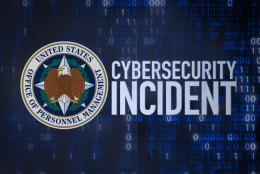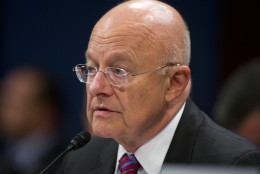Cybersecurity
-
The Senate has finally passed a cybersecurity bill. The Cybersecurity Information Sharing Act (CISA) sailed through on a 74-21 bipartisan vote earlier this week. But not everyone rejoiced at the Senate's decision. Russ Spitler, vice president of Product Strategy at Alien Vault, told Jared Serbu on In Depth with Francis Rose he has some concerns about CISA.
October 30, 2015 -
The Senate's passage of the Cybersecurity Information Sharing Act on Oct. 27 has a top House cybersecurity lawmaker pushing for the White House to get the bill as soon as possible.
October 30, 2015 -
Defense Secretary Ash Carter and Joint Chiefs of Staff Chairman Gen. Joseph Dunford earlier this month signed the Defense Department cybersecurity implementation plan that focuses on tools, culture and training.
October 29, 2015 -
Four years after the White House rolled out the National Strategy for Trusted Identities in Cyberspace (NSTIC), we now have the foundations the "identity ecosystem" envisioned within NSTIC. A volunteer steering group released Version 1 of Identity Ecosystem Framework (IDEF) last week. For the first time, it sets up "rules of the road" for companies, government agencies — hopefully making online identity management more efficient and more secure at the same time. Kim Little Sutherland, the Identity Ecosystem Steering Group's plenary chair, is also senior director of identity management strategy at Lexis Nexis Risk Solutions. She discussed the framework with In Depth guest host Jared Serbu.
October 29, 2015 -
The Marine Corps’ Deputy Commandant said the investments in cyber and information warfare will make up for fewer Marines.
October 28, 2015 -
The Office of Personnel Management plans to notify an additional 700,000 people by the end of October, and by mid-November have notified roughly 10 million victims of the cyber breach.
October 28, 2015 -
The Senate finally passed a cybersecurity bill. The Cybersecurity Information Sharing Act, or CISA, sailed through. Now it's the House's turn to act. For a look at what comes next, Federal Drive host Tom Temin caught up with Rep. Will Hurd (R-Texas), a freshman who chairs the Information Technology Subcommittee of the House Committee on Oversight and Government Reform.
October 28, 2015 -
Simulation exercises need not apply only to technical responses to cyber attacks. How management handles emergencies can determine how well an organization recovers from the damage, says Federal Drive host Tom Temin.
October 28, 2015 -
The Director of National Intelligence released a new transparency plan that will facilitate the publication of some intelligence documents.
October 27, 2015 John Landwehr, vice president, public sector CTO at Adobe, joins host John Gilroy to discuss how document management technology and monitoring analytics can help agencies secure their data. October 27, 2015
October 26, 2015-
More than a thousand IRS workstations never got updated from Windows XP because the agency couldn't find them all. The Treasury Inspector General for Tax Administration says another 1,300 are still running even older software, despite the IRS spending $128 million on upgrades. Ralph Khan is vice president of federal at Tanium. He tells the Federal Drive with Tom Temin more about the dangers of still running operating systems the manufacturers no longer support.
October 26, 2015 -
Webster Mudge, a senior director for technology solutions for Cloudera, contends that agencies can make their networks and data safer using analytics to get ahead of the bad guys.
October 26, 2015 -
Greg Smithberger, the NSA chief information officer, said the Intelligence Community IT Enterprise (ICITE) program is taking some of the concepts of the commercial cloud and applying special cybersecurity technologies on top.
October 23, 2015 -
The Department of Homeland Security's deputy secretary said a bill that would help the private sector share information with the government is much-needed. Critics of the bill worry about citizens' privacy.
October 23, 2015 -
Todd Helfrich, director of federal sales, ThreatStream, makes the case for why the Cybersecurity Sharing Act of 2015 will make a real difference in protecting the public and private sectors from cyber attacks.
October 22, 2015













